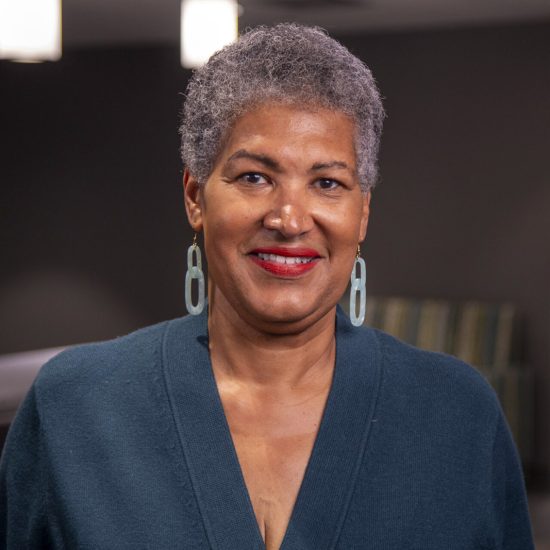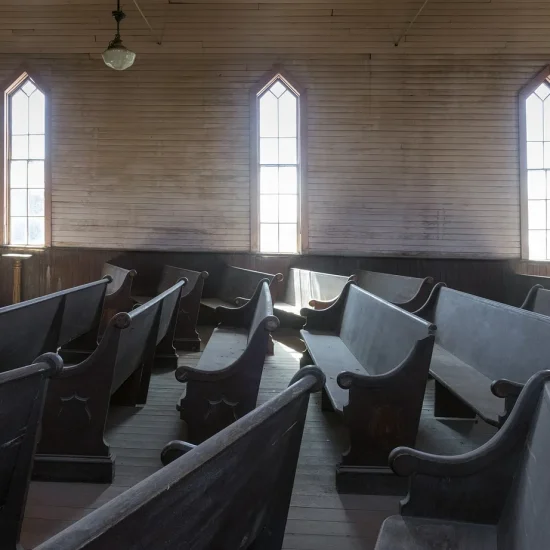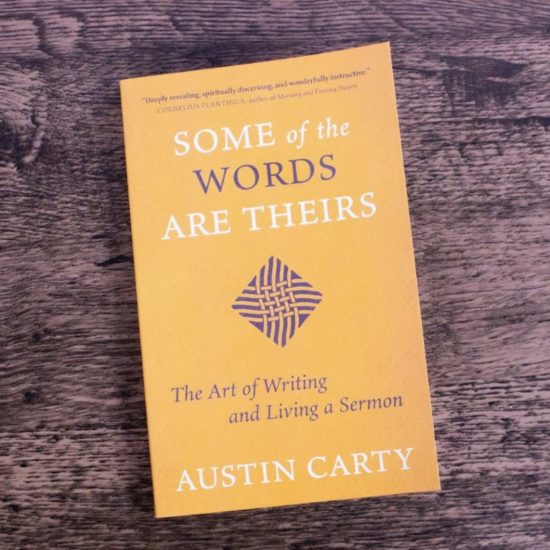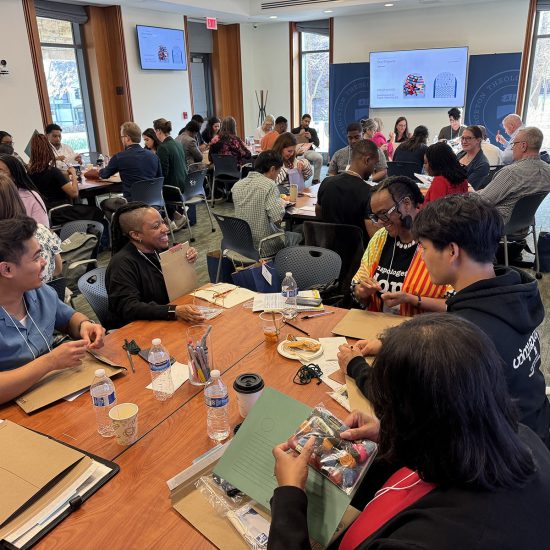SHAWNEE, Kan. – Community development, strategic coalitions and sensitivity to others are keys in Central Baptist Theological Seminary's approach to prepare students for urban ministry.
The seminary offers a master of arts degree in missional church studies, post-master of divinity degree or dual degree. While the degree is open to any student who qualifies, most students opt to pursue it through the Urban Missional Institute.
The institute launched in January 2007 as the CBTS' Urban Core Initiative shortly after the seminary relocated to Shawnee from downtown Kansas City. Seminary leaders expressed the seminary's commitment to the urban area even after the move.
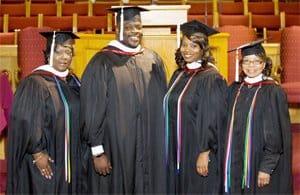
Recent graduates from Central Seminary's Urban Missional Institute are (l-r): Theresa McLoyd, Tracy "T.D." Hicks, Shannan Taylor and Ida Watson.
|
Through the degree program, students learn to develop faith-based organizations to assist urban communities with renewal, church planting and church community development education. They also learn to create community development initiatives, promote interdenominational and interfaith coalitions, and develop cross-cultural ministries.
To earn the degree, students must create an urban ministry project. Projects created by the seminary's first urban ministry M.A. students, who graduated this spring, included a prison reintegration ministry, a senior adult ministry, tutoring elementary students and an information resource guide for veterans suffering from post-traumatic stress.
In addition to providing learning opportunities for students, the institute offers the E.A. Freeman Lectureship. It also plans to offer the City Life Ministry Series, a quarterly conference for research, development and provision for resources for urban-based ministries, and a public faith forum to provide discussions with professionals, politicians and others about urban issues.
When fully developed, the institute will offer Urban Sacred Conversations, an online journal forum, and the Sacred Coalition Community Development Corporation, a not-for-profit agency to develop missional initiatives in urban areas.
Related stories:
Seminaries adapt to changing religious landscape
Traditional divinity program aids ministry in nontraditional contexts
Theological education: Equipping the equippers


